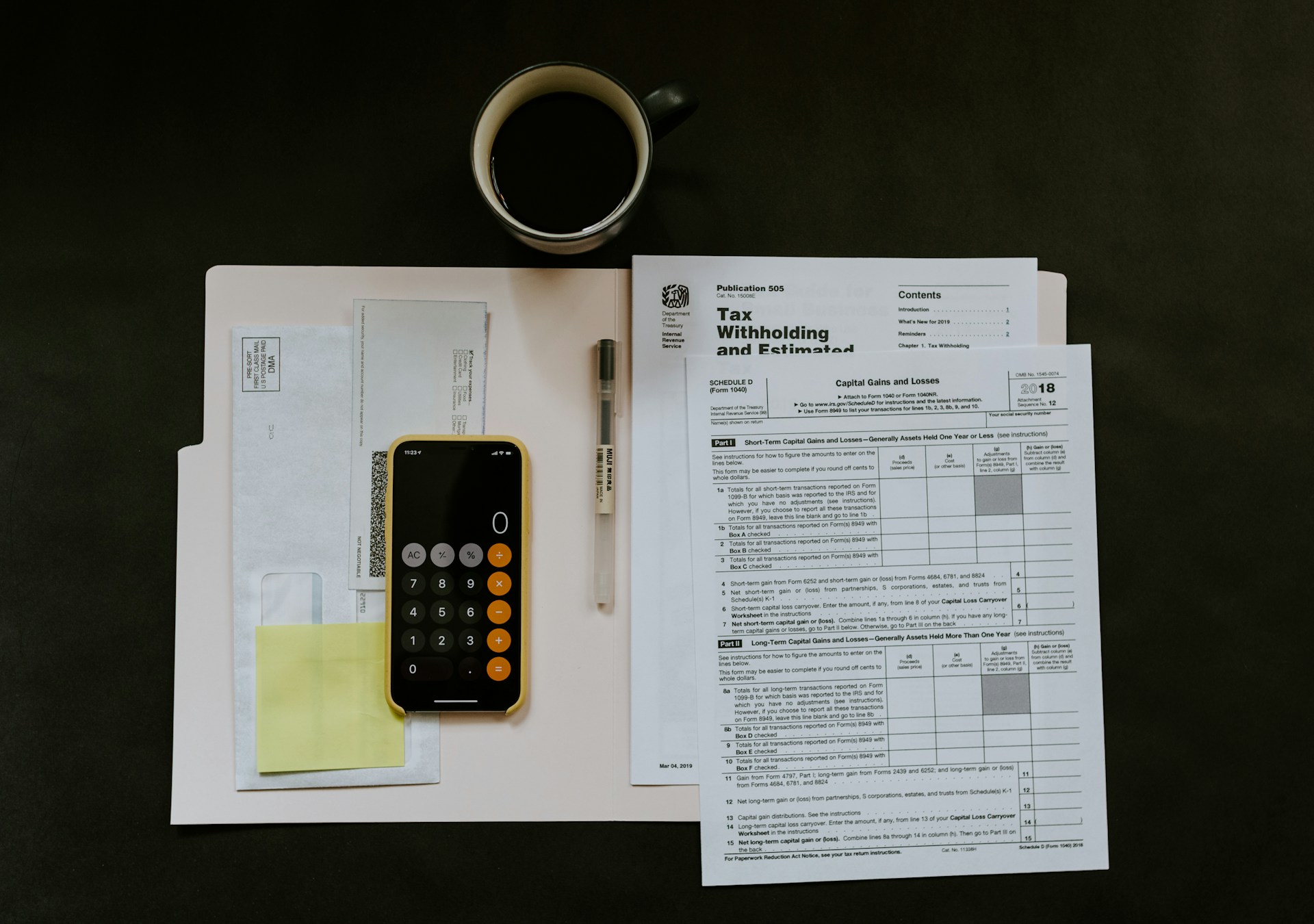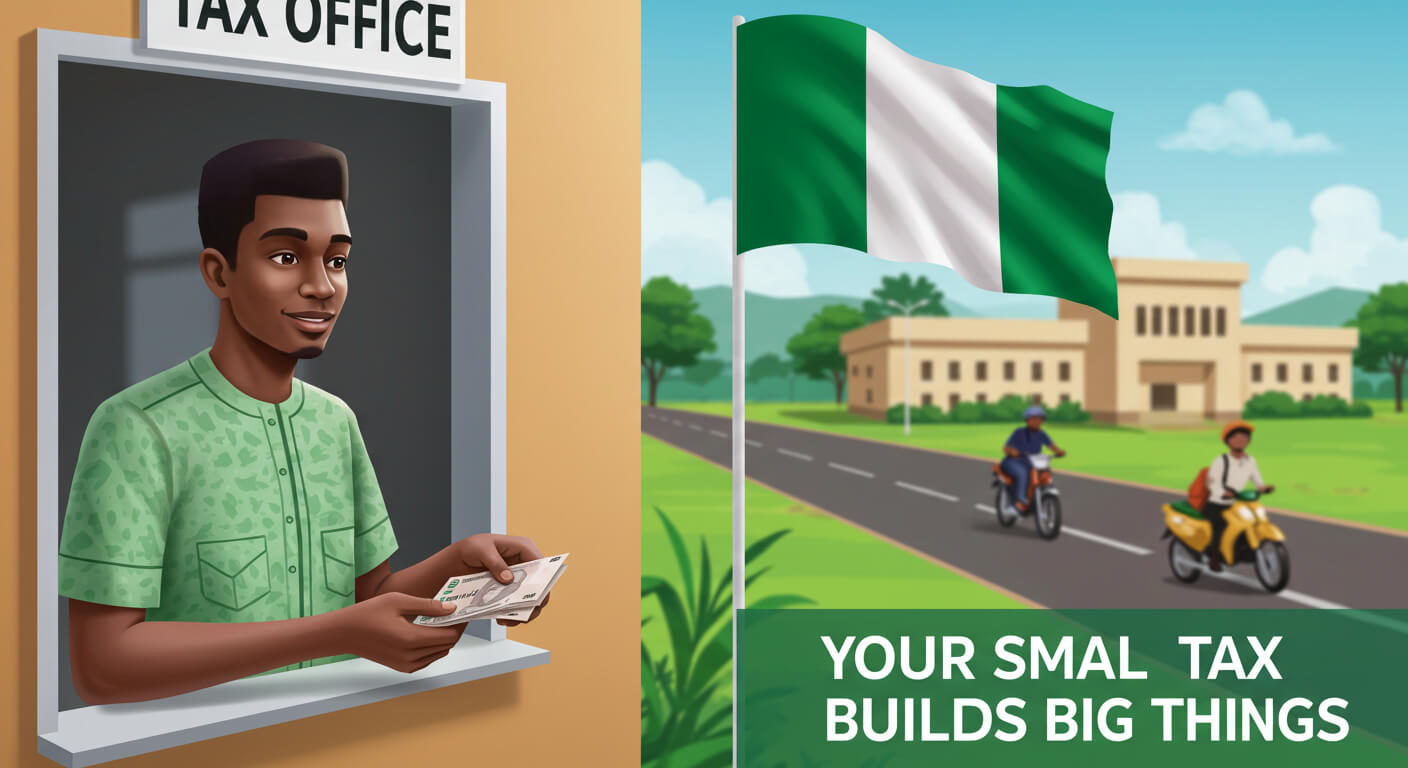Contents
What is Tax?
Tax is money that the government collects from individuals and businesses to fund public services and infrastructure.
It is not a donation. It is a legal responsibility.
You pay tax when:
- You buy a product (for example, groceries or cement).
- You earn a salary.
- You run a business.
- You import goods.
- You receive rent from property.
Taxes are the foundation of every functional country. Without them, the government cannot build roads, pay teachers, or maintain hospitals.
Everyday Examples of Tax in Nigeria
You may not notice them, but taxes show up in many everyday transactions. Here are a few examples:
- Buying airtime: When you recharge ₦1,000 airtime, Value Added Tax (VAT) is included in that price.
- Earning a salary: If you work for a company, Personal Income Tax is deducted from your salary under the Pay As You Earn (PAYE) system.
- Buying groceries: When you buy goods from large stores, VAT is usually included in the total price.
- Running a business: If your business is registered and earns revenue, you are expected to pay Company Income Tax.
Types of Taxes in Nigeria
There are many types of taxes in Nigeria, but here are the most common ones that affect individuals and small businesses:
1. Personal Income Tax (PIT)
This is the tax you pay on the income you earn as an individual. If you work for a company, this tax is automatically deducted from your salary (PAYE). If you are self-employed or a freelancer, you are expected to file and pay this tax yourself.
2. Value Added Tax (VAT)
This is a 7.5% tax added to most goods and services you buy. You pay it when you buy fuel, recharge airtime, or eat at a restaurant. The business collects it from you and pays it to the government.
3. Company Income Tax (CIT)
If you own a registered company, you must pay tax on your profits. The standard rate is 30%, but small companies with annual turnover below ₦25 million are currently exempt.
4. Withholding Tax (WHT)
This is a tax deducted at the source of payment, usually for contractors, consultants, or suppliers. The person paying you keeps a portion and remits it to the tax authority on your behalf.
5. Stamp Duties
This applies to documents such as agreements, contracts, and bank transactions. It is a minor tax, but still relevant for many official activities.
Why Are Taxes Important?
Here is what taxes help fund in Nigeria:
- Roads and infrastructure: Taxes fund construction and maintenance of roads, bridges, and drainages.
- Education: Public schools and universities rely on tax funding to pay teachers, build classrooms, and provide materials.
- Healthcare: Government hospitals and health programs depend on tax revenue.
- Security: Police, military, and emergency services are funded through taxes.
- Electricity and water projects: Taxes support government-backed projects to improve access to basic services.
When people pay taxes, the government has money to develop the country. When people do not, we all feel the impact through poor services.
Common Myths About Tax in Nigeria
Many Nigerians avoid taxes due to fear, misinformation, or distrust. Let us address some of the most common myths:
“Only rich people pay tax.”
False. Every adult with an income is expected to pay Personal Income Tax. You also pay VAT daily, whether you earn ₦10,000 or ₦1,000,000.
“The government will misuse the money.”
While there are issues of corruption, refusing to pay tax worsens the problem. Demand accountability, but also play your part.
“I run a small business, so I do not need to pay tax.”
If you earn money, you should pay tax, even as a small trader, freelancer, or artisan. The law applies to all.
“Filing tax is too difficult.”
The process is becoming easier with digital platforms and help from tax offices. You can register and file online in many states.
What Happens If You Do Not Pay?
Avoiding tax can lead to:
- Fines and penalties
- Business closure
- Legal action
- Loss of contracts (especially government jobs)
It is smarter to comply early and avoid future issues.
How to Start Paying Tax
Here are simple steps to become tax-compliant in Nigeria:
- Register with your state tax authority (for individuals) or the Federal Inland Revenue Service (FIRS) (for companies).
- Get a Tax Identification Number (TIN).
- Keep financial records of your income and expenses.
- File tax returns annually (or monthly, if required).
- Pay on time to avoid penalties.
You can visit your state’s tax office or go to www.firs.gov.ng to begin.
Final Thoughts
Tax is not a punishment. It is how citizens contribute to building a better Nigeria.
By understanding how it works and doing your part, you support the systems that benefit us all — from better roads to safer communities.
The more Nigerians understand and comply with tax laws, the stronger and more functional our country becomes.
Sources:



